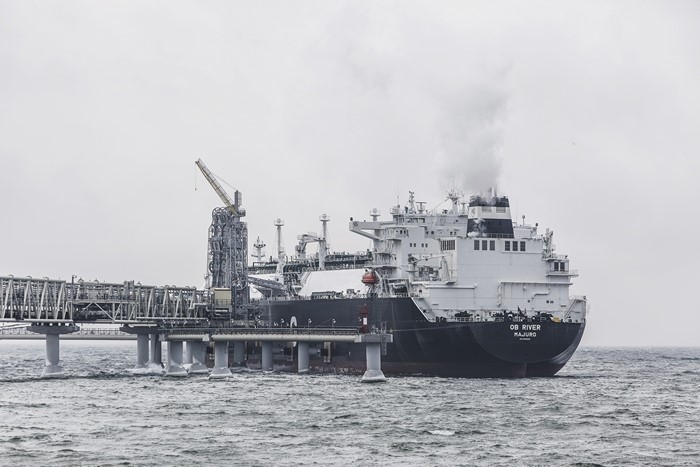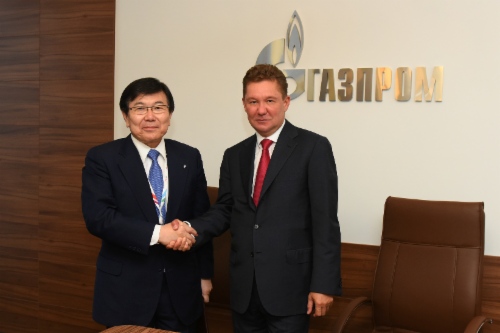A working meeting between Alexey Miller, Chairman of the Gazprom Management Committee, and Masami Iijima, Representative Director and Chairman of the Board of Directors of Mitsui & Co., Ltd., took place Friday (Sept 2) at the Eastern Economic Forum 2016 in Vladivostok.
The parties discussed the ongoing and future cooperation, focusing, among other things, on liquefied natural gas production within the Sakhalin II project and on the increase in its output with the construction of the third production train of the LNG plant.

LNG offloading in Sakhalin - Image courtesy: Gazprom
In the course of the meeting, Alexey Miller and Masami Iijima signed a Memorandum of Understanding. The document reflects the parties' intention to cooperate in feasibility and marketing studies with regard to the bunkering of marine vessels with liquefied natural gas in Russia's Far East and the Asia-Pacific region.
“Gazprom and Mitsui have successfully cooperated on the Sakhalin II project. Now we have an excellent opportunity to partner in a new business area – small-scale LNG. Joint efforts in the bunkering industry will help our companies diversify our businesses and strengthen our positions in the dynamic Asian market,” said Alexey Miller.

Mr. Masami Iijima and Mr. Alexey Miller - Image: Gazprom
Background
Japan's Mitsui & Co., Ltd (Mitsui) is focused on the development, marketing, distribution and treatment of all types of energy products in Japan and overseas, as well as on financial activities.
Russia's only LNG plant is operating under the Sakhalin II project. Sakhalin Energy Investment Company Ltd. is the Sakhalin II project operator with the ownership distributed among Gazprom (50 per cent plus one share), Shell (27.5 per cent minus one share), Mitsui (12.5 per cent), and Mitsubishi (10 per cent). On June 18, 2015, Gazprom and Shell signed the Memorandum on implementing the construction project for the third production train of the LNG plant. In 2015, the plant produced 10.8 million tons of LNG, exceeding the design capacity by 1.2 million tons.
Source: Gazprom